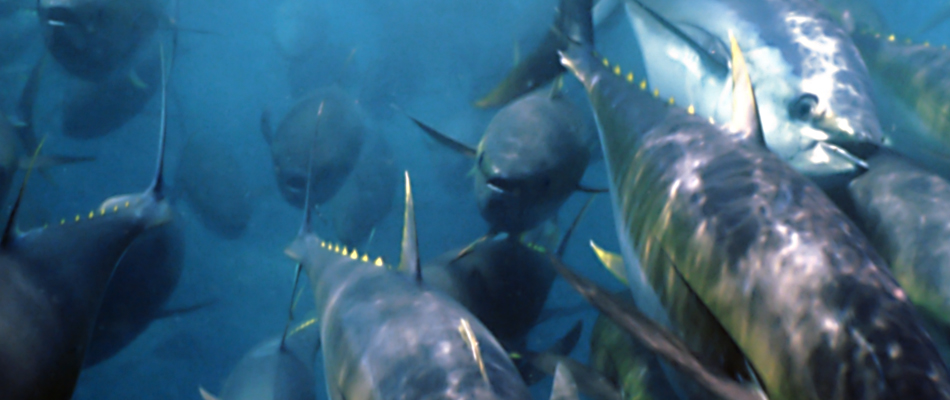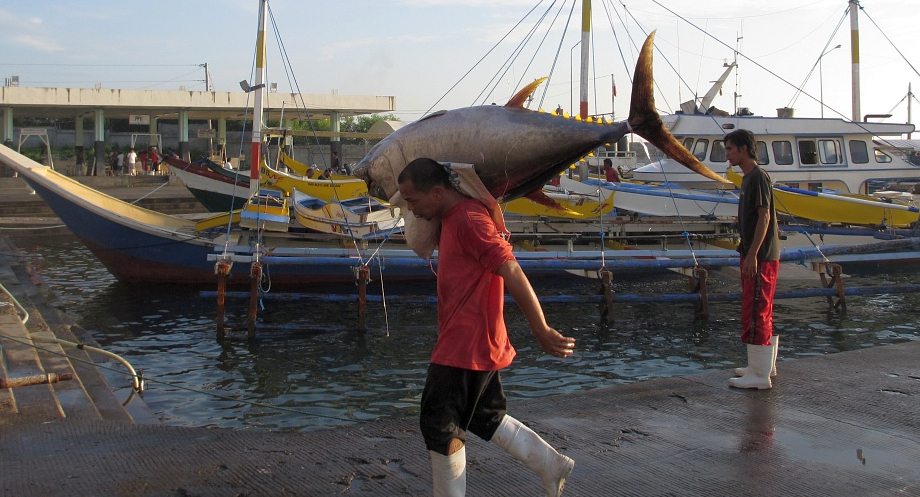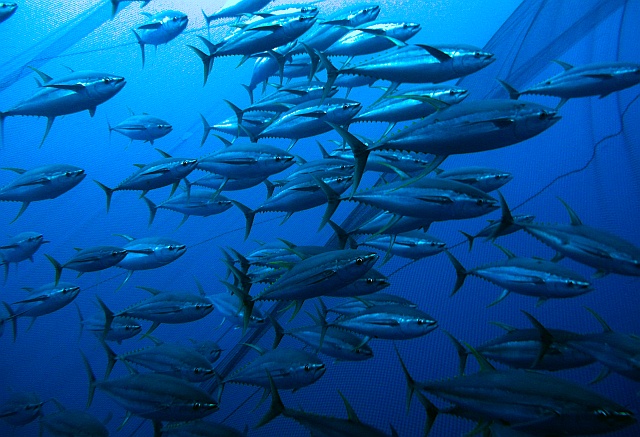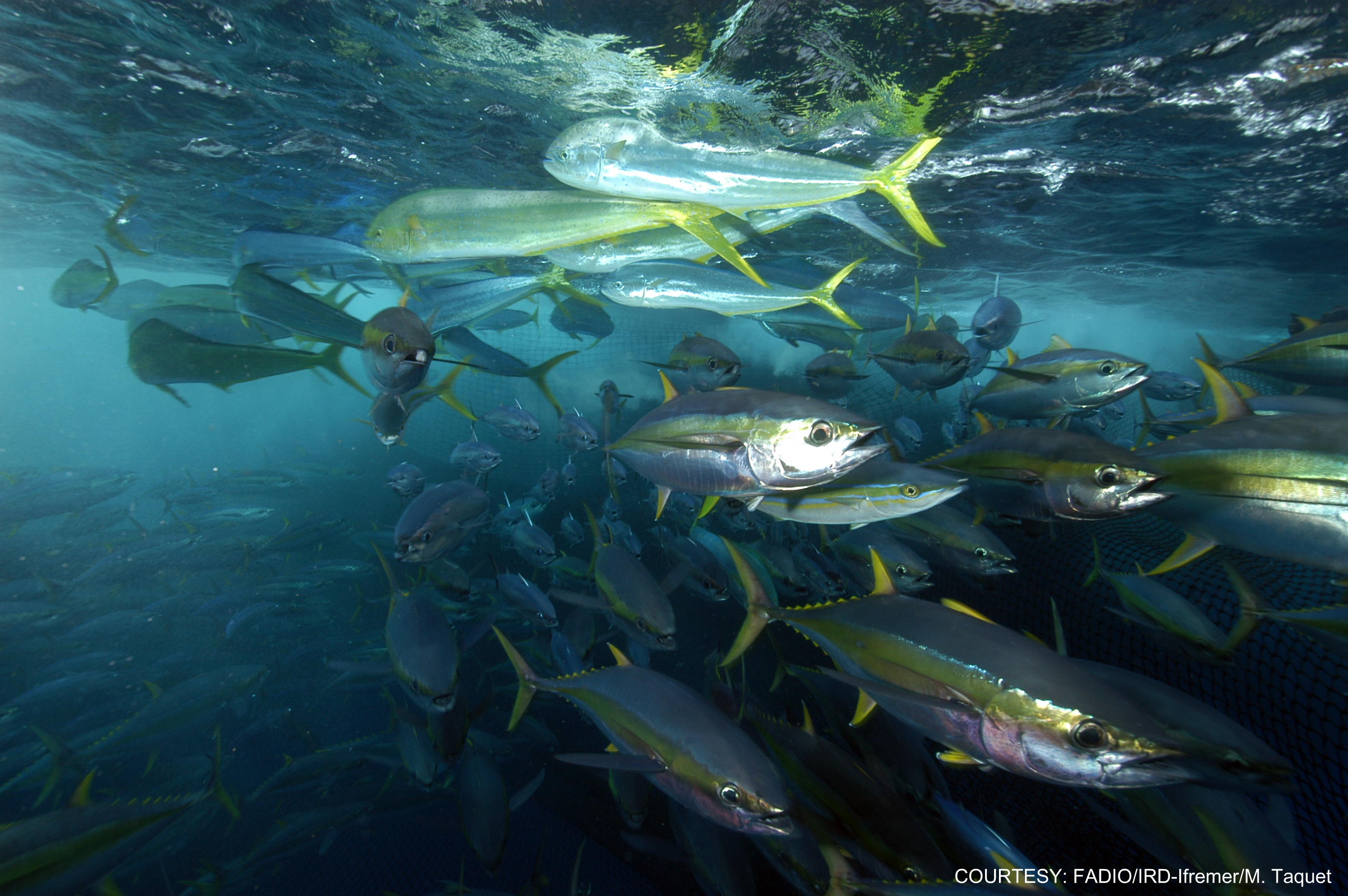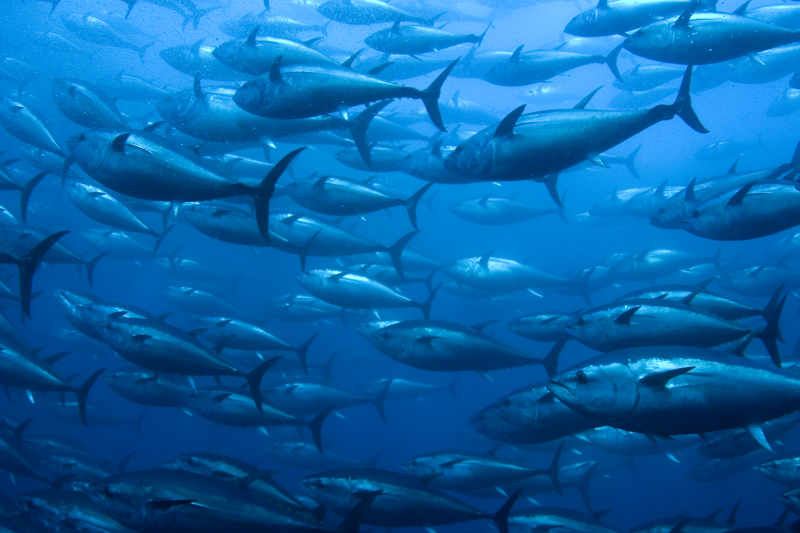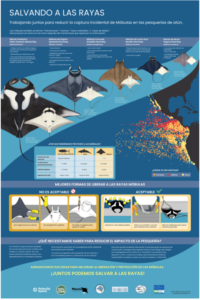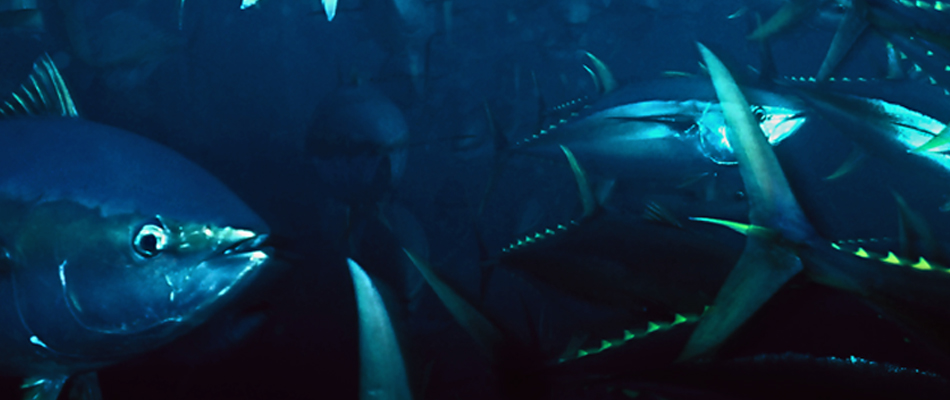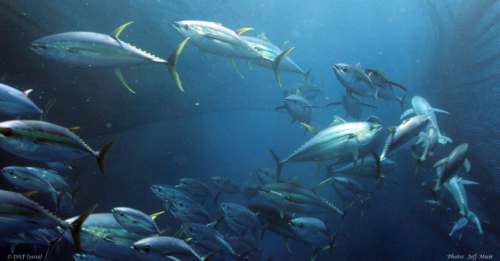87.6% of Global Tuna Catch Continues to Come from Stocks at Healthy Levels, While 9.6% Require Stronger Management
Of the total commercial tuna catch worldwide, 87.6% of the global catch continues to be sourced from stocks at “healthy” levels of abundance, according to the newest International Seafood Sustainability Foundation (ISSF) Status of the Stocks report. In addition, 9.6% of the total tuna catch came from overfished stocks, and 2.8% came from stocks at an intermediate level of abundance. This is the second update to this report since March 2020, when the COVID-19 pandemic started to impact the work of regional fisheries management organizations (RFMOs).
Several tuna stocks worldwide are considered overfished and/or subject to overfishing:
- The Atlantic Ocean bigeye, Indian Ocean yellowfin and Pacific bluefin tuna stocks continue to be overfished and subject to overfishing.
- Indian Ocean albacore and bigeye continue to be subject to overfishing.
- All skipjack and most albacore stocks remain healthy.
ISSF publishes its signature Status of the Stocks report twice each year using the most current scientific data on 23 major commercial tuna stocks.
Atlantic Ocean #bigeye, Indian Ocean #yellowfin and Pacific #bluefin #tuna continue to be overfished and subject to overfishing. Share on XKey Statistics in the Report
- Abundance or “spawning biomass” levels: Globally, 65% of the 23 stocks are at healthy levels of abundance, 22% are at an intermediate level and 13% are overfished.
- Fishing mortality levels: 74% of the 23 stocks are experiencing a well-managed fishing mortality rate, and 22% are experiencing overfishing.
- Total catch: The catch of major commercial tuna stocks was 5.3 million tonnes in 2019, a 2% increase from 2018. 60% was skipjack tuna, followed by yellowfin (28%), bigeye (7%) and albacore (4%). Bluefin tuna accounted for 1% of the global catch.
- Largest tuna catches by stock: The five largest catches in tonnes, unchanged since the previous report, are Western Pacific Ocean skipjack, Western Pacific Ocean yellowfin, Indian Ocean skipjack, Indian Ocean yellowfin and Eastern Pacific Ocean skipjack.
- Tuna production by fishing gear: 65.7% of the catch is made by purse seining, followed by longline (10.0%), pole-and-line (7.8%), gillnets (3.7%) and miscellaneous gears (12.8%). These percentages changed minimally since the previous report.
The Status of the Stocks report is reviewed by the ISSF Scientific Advisory Committee, which provides advice on its content. The report does not advocate any particular seafood purchase decisions.
The Pandemic’s Impact on the Status of the Stocks
This is the second update to this report since March 2020, when the COVID-19 pandemic began to impact the work of the RFMOs. In particular, meetings of the scientific committees and commissions have been scheduled on different dates than usual, which delayed the November 2020 update of the report and made capturing the outcome of the latest RFMO commission meetings the main focus of this update.
RFMOs have issued exemptions to certain monitoring requirements such as observer coverage. As such, the summaries of management measures provided for the stocks, particularly in relation to observer coverage, may not be completely accurate in reflecting the monitoring that is ongoing during this exceptional period. The report includes changes to management in the Eastern Pacific, Western and Central Pacific, Atlantic Ocean and Indian Ocean to incorporate all new or extended conservation measures adopted in late 2020 or early 2021.
About the Report
There are 23 stocks of major commercial tuna species worldwide — 6 albacore, 4 bigeye, 4 bluefin, 5 skipjack, and 4 yellowfin stocks. The Status of the Stocks summarizes the results of the most recent scientific assessments of these stocks, as well as the current management measures adopted by the RFMOs. Updated twice per year, Status of the Stocks assigns color ratings (green, yellow or orange) using a consistent methodology based on three factors: Abundance, Exploitation/Management (fishing mortality) and Environmental Impact (bycatch).
ISSF produces two Status of the Stocks reports annually to provide clarity about where we stand — and how much more needs to be done — to ensure the long-term sustainability of tuna stocks. The Status of the Stocks presents a comprehensive analysis of tuna stocks by species, and the Evaluation of the Sustainability of Global Tuna Stocks Relative to Marine Stewardship Council (MSC) Criteria provides scores for the stocks and RFMOs based on MSC assessment criteria. The MSC-certified fisheries list (Appendix 2) in Status of the Stocks complements the Evaluation report. Together, these tools help to define the continuous improvement achieved, as well as the areas and issues that require more attention.
In addition, ISSF maintains a data-visualization tool based on its Status of the Stocks report. The “Interactive Stock Status Tool” is located on the ISSF website and accessible through the Status of the Stocks overview page; users can easily toggle through tuna abundance and exploitation health indicators by catch or stock and filter by location and species as well as be informed about the share of total catch by species/stocks and gear types.
